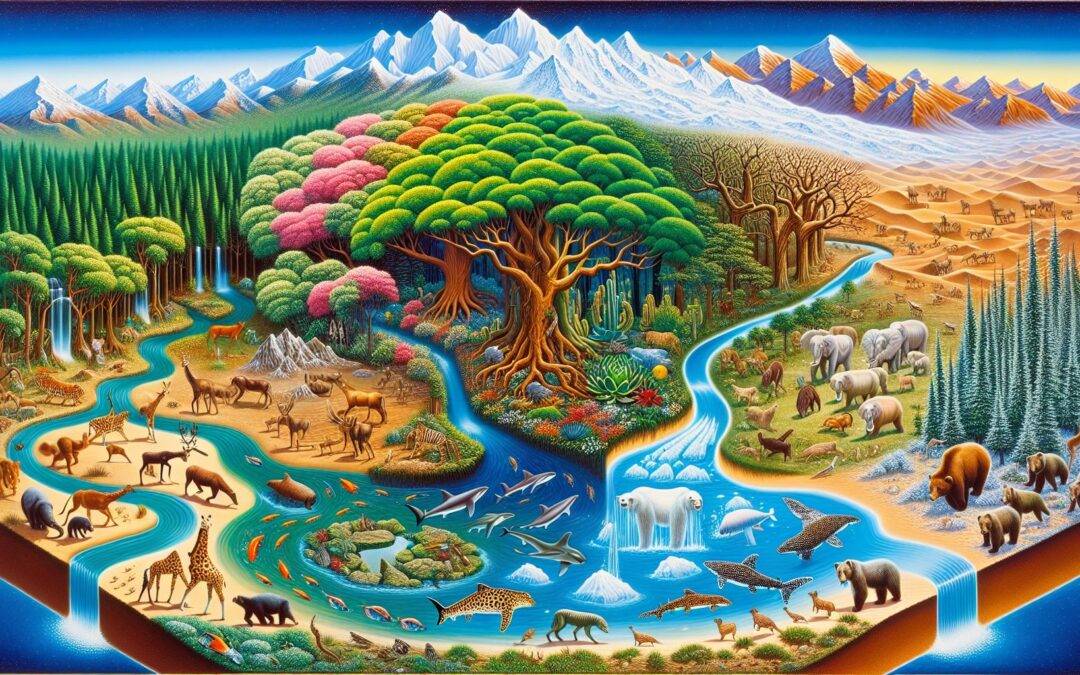The ecosystem, the Earth’s biosphere’s complex collection of all the interacting species, and their surrounding environment, forms the planet’s lifeblood. At the heart of this intricate network pulses water. Through its capacity to provide hydration to countless organisms, enable photosynthesis, and support diverse aquatic environments, water is, undeniably, life’s fundamental prerequisite.
It is disturbing to note, however, that as civilizations advance, the ubiquitous necessity for water in maintaining the digestive system of Earth’s ecosystem faces perilous threats. Consequently, the task of protecting the world’s water resources has escalated into a global duty. Here we delve into the nexus between water and ecosystems, exploring the impacts of their degradation, and the measures required to protect the precious lifeblood of our planet.
The Importance of Water in Ecosystems
Water occupies a crucial role in all ecosystems, not only in aquatic environments. It primarily accelerates biogeochemical cycles — the process through which essential nutrients move from the atmosphere and lithosphere into forms that organisms can use and then recycle them back into the biosphere.
The circulation of water molecules as part of the hydrological cycle helps distribute heat around the planet, ascertaining balance in the world’s climates. It also brings about changes in season and weather patterns, sculpting landscapes and ecosystems [^1^].
In freshwater ecosystems, water supports an array of life forms – from tiny plankton and invertebrates to larger animals, such as fish, birds, and mammals.
Conversely, in terrestrial ecosystems, plants’ capacity to draw water from the soil and transport it to their leaves sustains the process of photosynthesis. The availability and consistency of water in a region largely predetermine its climate and the life forms it can sustain.
The Impact of Water Degradation on Ecosystems
Unfortunately, human activities have slowly but steadily eroded the life-sustaining value of water in ecosystems.
Firstly, increased pollution levels in water bodies have devastated the ecosystem. Waste dumping, agricultural runoff, and industrial effluents render the water toxic for all forms of aquatic life. The introduction of excessive nutrients (eutrophication) leads to algal blooms that deprive the water of oxygen, culminating in the elimination of other species.
Secondly, excessive extraction of groundwater disrupts the water table, drying up springs and wells. This also causes the death of wetland ecosystems that depend on groundwater [^2^].
Thirdly, climate change casts an ominous shadow. Desertification and changes in precipitation patterns induced by global warming undermine aquatic and terrestrial ecosystems. Rising sea temperatures are causing the bleaching of coral reefs, destroying entire marine ecosystems.
Safeguarding Ecosystems by Protecting Water
Addressing the ecosystem crisis requires actions that promote sustainable use of water, ensuring that its vital role within ecosystems is acknowledged and safeguarded.
Governments, industries, and local communities can limit pollution by adopting eco-friendly practices. These range from committing to cleaner manufacturing processes to implementing sustainable agricultural practices. Using wastewater in a more sustainable way, through recycle and reuse, could mitigate water pollution and restore the quality of water in our ecosystems [^2^].
Further, integrating technology can significantly contribute to the conservation of water and ecosystems. Tech innovations that enable efficient water use and lower wastage, due to leaks and inefficient systems, can help us preserve water for maintaining the healthy functioning of ecosystems.
We also need to propagate the efficient use of water. Simple changes like reducing unnecessary water usage and water-friendly farming practices can make a substantial difference in preserving water for ecosystems.
The management of ecosystems, particularly watersheds, will require principles of cooperation. From inter-country river management treaties to local arrangements for wetland preservation, cooperative mechanisms can bear fruit and protect ecosystems in the long term.
Protecting water and ecosystems isn’t only a matter of saving our planet. It’s also about protecting ourselves and future generations. After all, by damaging ecosystems, we only undermine the very world that gives us life and sustenance.
Conclusion
Preserving the integrity and continuity of ecosystems by safeguarding water resources from pollution and overuse is no longer merely a choice, but a global imperative. As we traverse through the Anthropocene, the epoch marked by significant human activities shaping the Earth’s ecosystems and climates, it is high time to prioritize the link between water and ecosystems as a key component of public policies and social awareness.
Water is the lifeblood of our ecosystems, their essence and life thread. It’s time we recognize this connection and uphold our responsibility to protect it for a healthier, sustainable future for all life forms on Earth.
[^1^]: “Water in the environment”, OpenLearn, The Open University. Link
[^2^]: “Groundwater depletion accelerating worldwide”, National Geographic. Link

